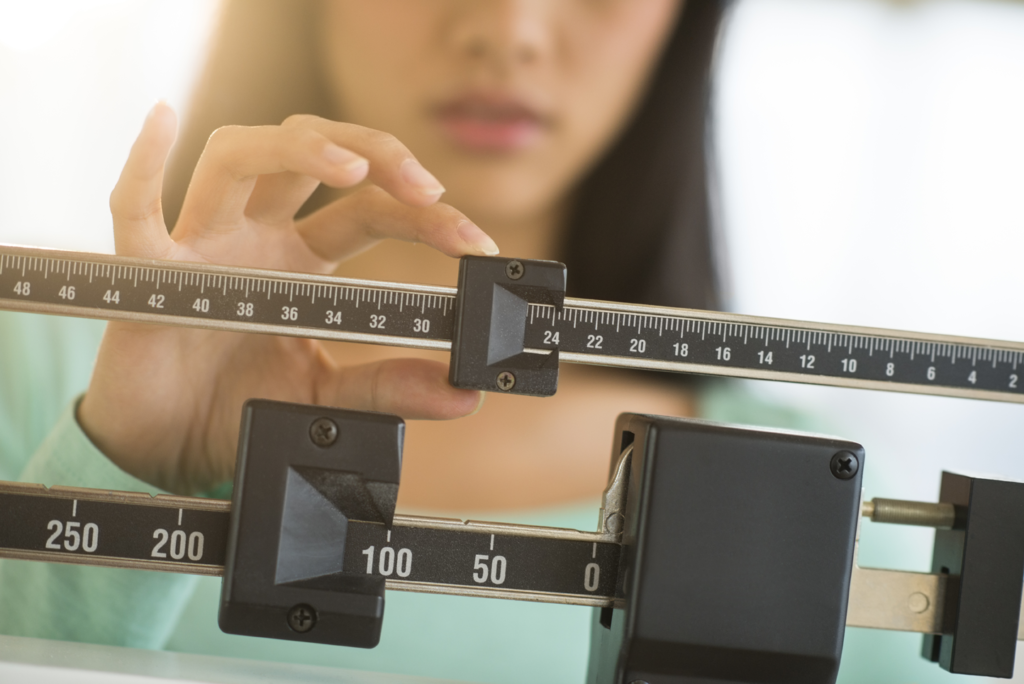Starting a weight loss journey can feel scary. But, with the right steps, you can lose weight fast and keep your body healthy. It’s important to make changes that last, like eating better, exercising more, and changing your lifestyle. Here are some expert tips to lose weight fast.
The Academy of Nutrition and Dietetics says losing 1-2 pounds a week is best. They say knowing about calorie deficits and exercising more is key. Using a mix of natural and proven methods can help you manage your weight better.
Changing what you eat is very important. The Dietary Guidelines for Americans 2020-2025 say adults should eat 5-7 ounces of protein a day. Kids should eat 2-5.5 ounces. Foods like chicken breast help keep your muscles strong, which boosts your metabolism.
Also, eating healthy fats and fiber is good for you. Foods like avocados and oats are full of these nutrients. They help keep you healthy.
New studies show eating green veggies and fruits helps you stay slim. Also, avoiding sugary drinks can help you lose weight faster. Drinking water and green tea can help burn more calories.
By using these tips and methods, you can lose weight quickly and stay healthy. Stay focused, learn about the science, and make smart choices to lose weight in a healthy way.
Understanding the Basics of Weight Loss
To lose weight, you need to make your body use more calories than it gets. This means you burn fat for energy. It’s all about the calorie deficit.
Your metabolism is how your body turns food into energy. It’s different for everyone. Knowing weight loss science helps you find the best ways to lose weight.
Eating whole foods is a good start. Add lots of fruits and veggies to your diet. They’re full of nutrients and make you feel full, helping you stay in a calorie deficit.
Exercise is key too. It burns calories and keeps you healthy. Just walking 10,000 steps a day or doing regular workouts can help boost your metabolism and aid in weight loss.
Don’t forget about sleep. It affects how hungry you feel and your food choices. Getting enough sleep is important for losing weight.
Watching your portion sizes and avoiding alcohol are also smart moves. Plan your meals to make healthy choices. These habits help you stick to weight loss science.
Healthy Weight Loss Diets
Starting a weight loss journey is easy with a good diet. Choose Healthy Meal Plans that have the right mix of nutrients. These plans focus on whole foods, lean proteins, and lots of fruits and veggies. They also cut down on processed foods and sugars. Portion Control is key to keep calorie intake low but not too low.
There are many ways to diet for weight loss. Very low-calorie diets (VLCDs) are very strict, with only 800 calories a day. They help you lose 3 to 5 pounds a week. But, they’re not for long-term use.
Low-calorie diets (LCDs) are more relaxed, with 1,200 to 1,500 calories a day for women and 1,500 to 1,800 for men. They’re easier to stick to and help you keep the weight off.
Fasting can also help. The 16:8 plan lets you eat for 8 hours a day. The 5:2 system means fasting or eating very little for two days a week.
The Mayo Clinic Diet is another good choice. It focuses on lasting changes, not quick fixes. You can lose 6 to 10 pounds in the first two weeks. Then, you lose 1 to 2 pounds a week. It lets you eat all the fruits and veggies you want.
Good weight loss diets focus on Healthy Meal Plans and Portion Control. They help you keep the weight off for good. These diets also lower your risk of diseases like diabetes and heart disease.
Quick Weight Loss Tips for Beginners
Starting a weight loss journey can be tough, but it’s doable. Here are some quick tips to help you begin. First, drink lots of water before meals. It can help you eat less and feel full.
Eating protein with every meal is also key. It makes you feel full and less hungry for sweets.
Eating more veggies and fruits is important. Try to have four veggies and three fruits a day. They give you nutrients and keep you full.
Being mindful of when you’re hungry or full is vital. Using smaller plates can also help you eat less.
Exercise is a big part of losing weight. Do 30 minutes of aerobic exercise most days. Also, do strength training twice a week to build muscle.
Walking briskly for 30 minutes after meals is better than before. It helps with digestion.
Keeping a food diary helps you track what you eat. Managing stress with meditation can stop you from eating too much. Don’t skip meals to avoid eating too much later.
Having a healthy breakfast helps your metabolism and blood sugar. This supports weight loss.
For more tips and research on losing weight, check out this Medical News Today article. These basic tips will help you start on the right path to losing weight.
How to Lose Weight Fast
For those wondering how to lose weight fast, a careful plan is key. Start by eating fewer calories than you need. Keeping a daily calorie log helps manage this well.
Increasing your activity is also important for rapid fat loss. The CDC says 150 minutes of moderate exercise a week helps. Mix cardio with strength training to keep muscle and boost metabolism.
Eating certain foods can help burn calories faster. A diet high in protein aids in weight loss over 6-12 months. Soluble fiber-rich foods also boost metabolism and keep you full longer.
- Drink water with meals to reduce appetite and caloric intake.
- Opt for low-calorie diets when aiming to lose up to 20 pounds in a month, though sustainable approaches are preferred.
- Avoid refined carbs, which can increase hunger levels and result in weight gain.
Improving sleep and eating slowly also helps with weight loss. These habits help prevent obesity and control food intake.
Learning to balance diet, exercise, and lifestyle is key for rapid fat loss. Aim for slow weight loss, 1-2 pounds a week, to avoid crash diet problems.
Natural Methods to Boost Metabolism
Boosting your metabolism naturally helps you lose weight healthily. Adding metabolism boosters to your routine can help. This way, you can make your body burn more calories naturally.
Eating foods high in protein is a good start. Foods like meat, dairy, and legumes boost your metabolism. Protein takes more energy to digest than carbs or fats, helping you burn more calories.
Spicy foods are also good for you. Capsaicin in peppers can burn extra calories. This helps your body burn more fat and increases your resting metabolic rate.
Regular exercise is key too. High-intensity interval training (HIIT) and strength training are best. HIIT and strength training can make your body burn more calories and fat.
Getting enough sleep is also important. Lack of sleep can slow down fat burning and increase obesity risk. The CDC says adults should sleep at least 7 hours a night for a healthy metabolism.
Drinking water is often overlooked but very important. Drinking 500 mL of water can boost your metabolism by 30% for an hour. Staying hydrated is good for your metabolism.
Using natural supplements like green tea or caffeine can also help. Green tea has catechins and caffeine that boost metabolism and fat burning. Drinking up to 8 cups of green tea a day is safe, says the National Center for Complementary and Integrative Health.
By using these natural methods, you can improve your metabolism. This includes eating right, exercising, sleeping well, staying hydrated, and using supplements. This approach supports natural weight loss and boosts your metabolic rate.
Effective Fat Burning Exercises
Doing regular physical activity is key to burning fat and calories well. Here are some top *Fat Burning Exercises* to add to your workout routine:
- Cardio Workouts: Cardio exercises that make your heart rate go up are great for fat burning. A study of 20 women with obesity showed walking for 50-70 minutes, three times a week, cut body fat by 1.5% on average.
- High-Intensity Workouts: High-Intensity Interval Training (HIIT) is super effective. It burns 25-30% more calories per minute than other exercises like weight training and cycling. This makes HIIT a top choice for losing weight.
- Cycling: A 140-pound person burns about 6.4 calories per minute cycling at 10 miles per hour. A 180-pound person burns around 8.2 calories per minute at the same speed.
- Weight Training: Regular weight training boosts your metabolic rate by 7.4% on average. This means you can burn an extra 125 calories daily. Having more muscle also helps burn more fat when you’re not exercising.
- Swimming: Swimming at a moderate pace burns about 9 calories per minute for a 140-pound person. For a 180-pound person, it burns 11.6 calories per minute. This makes swimming a great exercise for losing weight.
- Yoga and Pilates: Both yoga and Pilates help reduce waist size, studies show. For example, a 12-week yoga study found waist circumference dropped by 1.5 inches (3.8 cm) on average.
Mixing up these *Fat Burning Exercises* to fit your fitness level can really help reduce body fat and boost health. Being consistent and varied is important for a lasting and effective workout plan.
Maintaining Weight Loss Long-Term
Losing weight is a big win, but keeping it off is harder. To keep weight off, you need to make lifestyle changes. It’s important to know what makes you eat unhealthy and find ways to avoid it.
Being active, eating well, and watching calories are key. Losing just 5% of your body weight can lower your risk of serious diseases. For someone who weighs 200 pounds, that’s just 10 pounds.
To keep off that weight, you need to burn 1,500 to 2,000 calories a week. This can be done with 150 minutes of cardio and strength training twice a week. The National Weight Control Registry says 94% of people who kept weight off were more active.
What you eat is also very important. Eating foods high in protein helps you feel full and can speed up your metabolism. Adding 200 calories of healthy food each day can help you see if you can keep the weight off.
Tracking your food and weight is also important. It helps you stay on track and motivated. People who watch their weight eat 300 fewer calories a day.
Staying consistent with your meals and managing stress are also key. Eating the same way every week helps you keep weight off. Adults should aim for 40 minutes of exercise, three to four times a week, to manage weight.
Source Links
- How to Lose Weight Fast: 3 Simple Steps, Based on Science – https://www.healthline.com/nutrition/how-to-lose-weight-as-fast-as-possible
- 12 Key Fundamentals of Losing Weight – https://www.urbanfitness.com.au/blog/weight-loss/12-key-fundamentals-of-losing-weight
- The ABCs of Weight Loss – https://www.webmd.com/diet/features/the-abcs-of-weight-loss
- Diet for rapid weight loss Information | Mount Sinai – https://www.mountsinai.org/health-library/special-topic/diet-for-rapid-weight-loss
- Lose weight for life with the official Mayo Clinic Diet – https://www.mayoclinic.org/healthy-lifestyle/weight-loss/in-depth/mayo-clinic-diet/art-20045460
- 6 proven strategies for weight-loss success – https://www.mayoclinic.org/healthy-lifestyle/weight-loss/in-depth/weight-loss/art-20047752
- 50 easy ways to lose weight – https://www.bbcgoodfood.com/health/weight-loss/50-easy-ways-to-lose-weight
- How to Lose 20 Pounds as Fast as Possible – https://www.healthline.com/nutrition/how-to-lose-20-pounds
- Tips to help you lose weight – https://www.nhs.uk/live-well/healthy-weight/managing-your-weight/tips-to-help-you-lose-weight/
- 8 Ways to Lose Belly Fat and Live a Healthier Life – https://www.hopkinsmedicine.org/health/wellness-and-prevention/8-ways-to-lose-belly-fat-and-live-a-healthier-life
- How to Speed Up Your Metabolism: 8 Easy Ways – https://www.healthline.com/nutrition/10-ways-to-boost-metabolism
- 12 natural ways to increase your metabolism – https://www.medicalnewstoday.com/articles/323328
- 12 Natural Ways You Can Boost Your Metabolism – https://www.verywellhealth.com/how-to-boost-metabolism-7501652
- The 8 Best Exercises for Weight Loss – https://www.healthline.com/nutrition/best-exercise-for-weight-loss
- The Best Fat-Burning Exercises for at Home and the Gym – https://www.everydayhealth.com/fitness/the-best-fat-burning-exercises-for-at-home-and-the-gym/
- Long-Term Weight Loss Tips – https://www.webmd.com/obesity/losing-weight-long-term
- Maintaining Weight Loss – https://www.hopkinsmedicine.org/health/wellness-and-prevention/maintaining-weight-loss
- The 17 Best Ways to Maintain Weight Loss – https://www.healthline.com/nutrition/maintain-weight-loss




